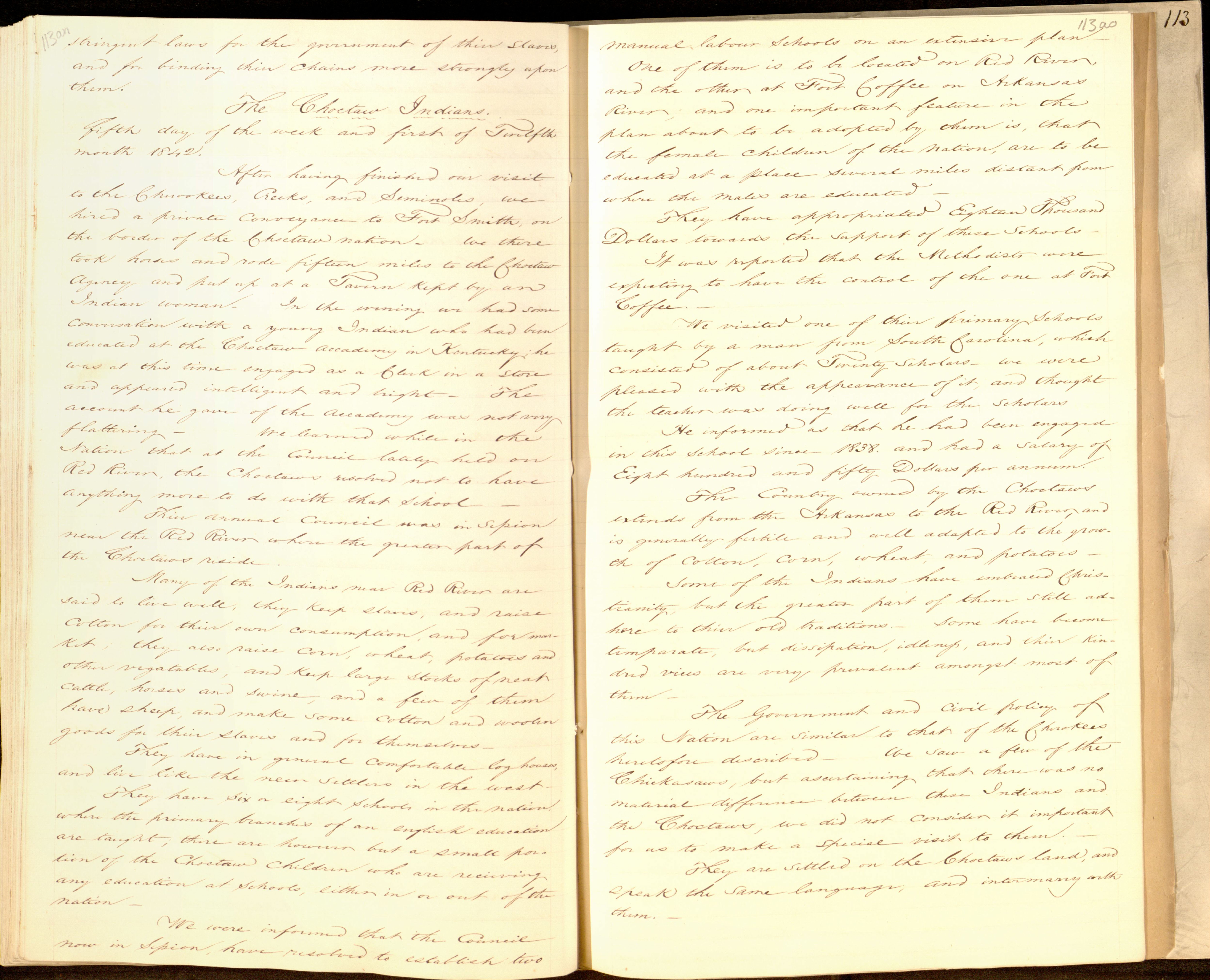stringent laws for the
government of thier slaves,
and for binding thier Chains more strongly upon
them.
The Choctaw
fifth day of the week and first of Twelfth
month 1842.
After having finished our visit
to the Cherookees
hired a private conveyance to Fort Smith
the border of the Choctaw
took horses and rode fifteen miles to the Choctaw
Agency and put up at a Tavern kept by an
Indian woman. In the evening we had some
conversation with a young Indian who had been
educated at the Choctaw accademy in Kentucky
was not very
flattering. We learned while in the
Nation that at the Council lately held on
Red River
anything more to do with that school.
Their annual Council was in Session
near the Red
River
the Choctaws
Many of the Indians near Red River
said to live well, they keep slaves, and raise
Cotton for thier own consumption, and for mar-
ket, they also raise corn, wheat, potatoes and
other vegetables, and keep large stocks of neat
cattle, horses and swine, and a few of them
have sheep, and make some cotton and woolen
goods for thier slaves and for themselves.
They have in general comfortable log houses
and live like the new settlers
in the west.
They have six or eight schools in the nation,
where the primary branches of
an english education
are taught; there are however but a small por-
tion of the Choctaw
and education at schools, either in or out of the
nation.
We were informed that the Council
now in Session, have resolved to establish
two
manual labour schools on an extensive plan.
One them is to be
located on Red River
and the other at Fort Coffee
River
plan about to be adopted by them is, that
the female children of the nation, are to be
educated at a place several miles distant from
where the males are educated.
They have appropriated Eighteen Thousand
Dollars towards the support of
these schools.
It was reported that the Methodists were
expecting to have the control of
the one at Fort
Coffee.
We visited one of thier primary schools
taught by a man from South Carolina,
which
consisted of about Twenty Scholars. We were
pleased with the
appearance of it, and thought
the teacher was doing well for the
scholars.
He informed us that he had been engaged
in this school since 1838. and had a salary of
Eight hundred and fifty
Dollars per annum.
The Country owned by the Choctaws
extends from the Arkansas
is generally fertile and well adapted to the grow-
th of cotton, corn, wheat, and potatoes.
Some of the Indians have embraced Chris-
tianity, but the greater part of
them still ad-
here to thier old traditions. Some have become
temparate, but dissipation, idleness, and thier kin-
dred views are
very prevalent amongst most of
them.
The Government and Civil policy of
this Nation are similar to that of the
Cherokees
heretofore discribed. We saw a few of the
Chickasaws
material difference between these Indians and
the Choctaws
for us to make a special visit to them.
They are settled on the Choctaws
speak the same language, and intermarry with
them.

